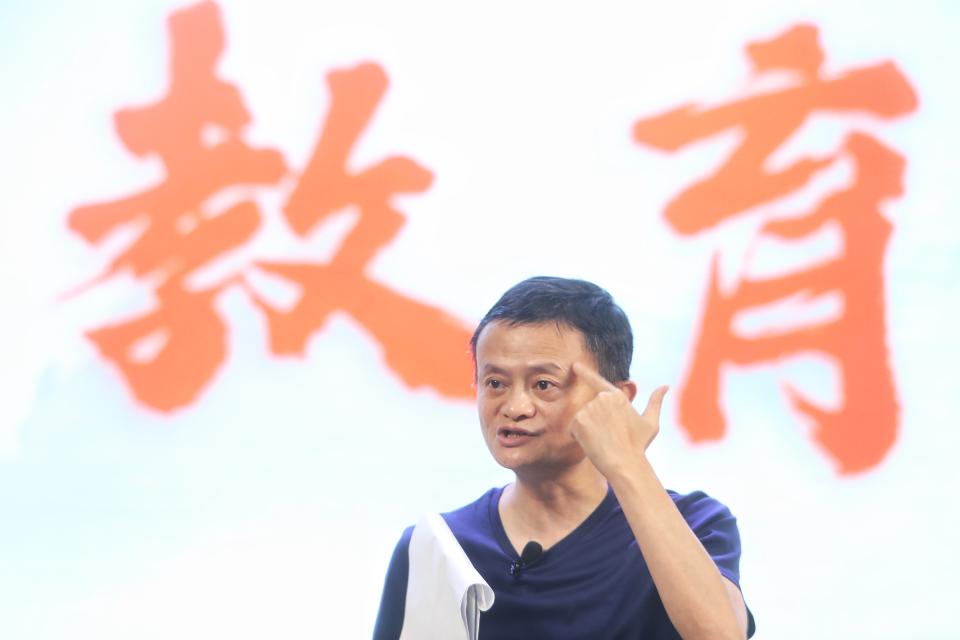Jack Ma's controversial '996' work system promotes 'death by overworking'

Alibaba (BABA) chairman Jack Ma is one of the richest men in the world and has grown his company — dubbed China’s Ebay (EBAY) — into a $474bn (£362bn) tech giant.
However, his views on an optimal work system has come under fire, as it promotes an excessive overtime culture which, numerous studies have shown, does not result in a more productive workforce.
Last week, Ma enthused about how a 9am to 9pm working day, and a six-day week — which equates to working 72 hours a week — was key to an efficient and optimal workforce and that China’s economy was “very likely to lose vitality and impetus.” This view was further supported by another tech entrepreneur and boss of ecommerce giant JD.com, Richard Liu.
However, after much backlash from non-China based commentators as well as debate from within China, Ma doubled down on his opinion and called the opportunity to heavily overwork as a “blessing.” While Ma reiterated that forcing employees to work gruelling hours was “inhumane,” he said “those who can stick to a 996 schedule are those who have found their passion beyond monetary gains.”
“As I expected, my comments internally a few days ago about the 996 schedule caused a debate and non-stop criticism,” said Ma in response.
“I understand these people, and I could have said something that was ‘correct.’ But we don’t lack people saying ‘correct’ things in the world today, what we lack is truthful words that make people think.”
In the same vein, JD.com’s Liu also wrote a post about his work ethic, saying “JD in the last four, five years has not made any eliminations, so the number of staff has expanded rapidly, the number of people giving orders has grown and grown, while those who are working have fallen.
“Instead, the number of slackers has rapidly grown! If this carries on, JD will have no hope! And the company will only be heartlessly kicked out of the market! Slackers are not my brothers!”
Why working even 40 hours a week is unproductive
While both Chinese billionaires are strident on, basically, never switching off, many studies have shown that even just a 40 hour working week (which is standard in developed markets and substantially less than Ma’s proposed 72 hour working week) is not optimal for productivity.
For example, Ohio University highlighted how the typical “40-hour working week is not based on the ideal total hours humans can work productively.” It used an example of Sweden, where people work considerably fewer hours than their counterparts in countries such as the US and UK. The average worker clocks only about six hours a day, compared to the average minimum of eight hours a day. Ohio University said that the switch-up in hours resulted in a “marked reduction in absenteeism, [improved] worker health in addition to improved productivity.”
According to the Organisation for Economic Co-operation and Development data, people in Germany actually have the shortest working hours compared with all OECD member countries. However, it also has one of the highest productivity levels and employees are 27% more productive than UK staff who work more hours per year.
A trial conducted in New Zealand between March and April 2018 also garnered some impressive results. Trustee company Perpetual Guardian, who conducted the trial which was studied by academics at the Auckland University of Technology and the University of Auckland, said work “remained up to standard” while worker stress decreased and engagement increased.
Overworking to death
In Asia, the work ethic and practice does differ from the standard 40-day working week of the West.
A study in 2016 from investment bank UBS looked at 72 cities across the world. Hong Kong’s workforce had the longest working hours averaging 50.11 hours per week, in comparison to Paris, France with 30.84 hours per week — the shortest working week out of all the cities in the world.
In Japan, the widely-used word ‘karoshi’ literally means “overwork death.” This is when someone dies suddenly from heart attacks and strokes, stemming from stress and possibly a starvation diet due to over-working. This ‘phenomenon’ was first identified in 1987 by Japan’s health ministry and, now, if a death is judged karoshi, the deceased’s family receives a compensation of around $20,000 a year from the government. Company payouts can amount up to $1.6m.
But the phenomenon has spread across Asia — namely China. In Mandarin, the Chinese have even coined their own word for ‘karoshi’ — ‘guo lao si.’
In China, the 996 working system is common practice and has been documented across major Chinese firms for years. While a 2017 China Labour Dynamics Survey claims the average Chinese employee clocks just 44.7 hours a week at work and China’s labour law states that workers should not work more than eight hours a day, at a maximum 44 hours a week, that working practice can be easily circumvented and rules are loosely enforced.
Over the last decade, China has overtaken Japan in terms of the number of people who die from overworking, with an average of around 1,600 deaths every day. It is estimated that 600,000 people die from work-related stress every year in China. In some cases, there were mass suicides. At a Foxconn factory that manufacturers Apple products in China, where workers were reported to be working regular 12 hour days, there were a spate of suicides. The company has since installed suicide nets and given pay rises.
But it’s not just factory workers that endure overworking by stress — reports say that white-collar workers from industries such as the advertising, medical care, and IT are most susceptible to dying from ‘karoshi’ / ‘guo lao si.’
This is an opinion piece and does not necessarily reflect the stance of the rest of Yahoo Finance UK.

 Yahoo Finance
Yahoo Finance 
